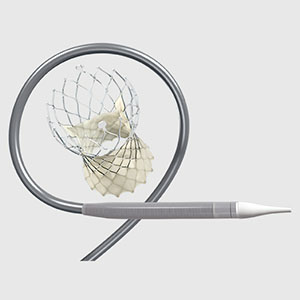
News Releases
Canadian study confirms affordability of minimally invasive TAVR treatment for aortic stenosis, supporting increased access for low-risk patients
Brampton, Canada – Medtronic Canada is pleased to share the results of a recent study published in the Canadian Journal of Cardiology, demonstrating the affordability of minimally invasive...

Brampton, Canada – Medtronic Canada is pleased to share the results of a recent study published in the Canadian Journal of Cardiology, demonstrating the affordability of minimally invasive transcatheter aortic valve replacement (TAVR, also known as TAVI).
TAVR is indicated across the risk spectrum for patients suffering from severe aortic stenosis (AS), a condition requiring heart valve replacement due to limited blood flow from hardened heart valve leaflets. If left untreated, AS can lead to heart failure.
Annual Budget Impact Analysis Comparing Self-Expanding Transcatheter and Surgical Aortic Valve Replacement in Low Risk Aortic Stenosis Patients provides a robust costing model comparing the total cost of TAVR — which only requires a keyhole incision — with traditional open chest surgical aortic valve replacement (SAVR). This is significant as the higher upfront cost of TAVR has been a barrier to patient access, particularly in the low-risk population. Given the more invasive nature of SAVR, the authors took a longer-term approach comparing overall related costs to the health system one year after surgery. The study considers the most common healthcare resources involved, such as total length of stay, and complication event rates between both options. The authors concluded that the cost of TAVR is approximately 2.8% or, incrementally $2,172 more than traditional SAVR at the one-year point. This illustrates budget flexibility that can be available to meet the growing demand for TAVR, particularly when factoring in the freeing up of significant resources such as critical ICU beds.
“Recognizing the affordability of TAVR allows health systems to prioritize patient satisfaction, while also optimizing capacity,” says study coauthor Hamid Sadri, director of Health Outcomes Research at Medtronic Canada. “The added value of minimally invasive surgery like TAVR is that it can also contribute to reducing the burden on health human resources, which is currently one of the biggest challenges for health systems trying to adapt to evolving pandemic conditions.”
For more information, contact Roxane Belanger 905-460-3800